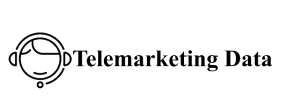In today’s digital age, data is king. The ability to store, organize, and access data efficiently is critical to the success of any organization. That’s why it’s important to have a special database that meets the unique needs of your business. Here are 10 tips about special databases that you need to know:
Understand your data
- Before selecting a special database, it’s important to understand the nature of your data. This includes its volume, velocity, variety, and veracity. Once you have a clear understanding of your data, you can select a database that is best suited to handle it.
- Choose the right type of database: There are several types of special databases available, such as relational, NoSQL, graph, and document-oriented databases. Choose the type that is best suited for your data and business needs.
- Plan for scalability: Your special database should be able to scale with your business. Make sure it can handle increased data volumes and traffic as your business grows.
- Consider security: Data security is crucial, especially Database if your database contains sensitive information. Choose a special database with robust security features that meet your organization’s needs.
- Look for flexibility: Your special database should be flexible enough to accommodate changing business needs. Look for databases that allow for easy integration with other systems and data sources.
- Evaluate performance: Database performance can impact the speed and efficiency of your applications. Evaluate the performance of potential databases under different scenarios and choose the one that meets your performance requirements.
- Consider ease of use: The ease of use of a special database can impact the productivity of your team. Choose a database that is easy to set up, use, and maintain.
Look for vendor support
- Choose a special database that is backed by a reputable vendor with a good track record of customer support.
- Consider cost: Special databases can vary in cost, depending on the features and level of support required. Consider the total cost of ownership when choosing a database.
- Evaluate backup and recovery Gulf Email List options: Data loss can be catastrophic for any business. Choose a special database with robust backup and recovery options to ensure your data is protected in the event of a disaster.
In conclusion, selecting the right special database is critical to the success of your business. By following these 10 tips, you can choose a database that meets your organization’s unique needs, is secure, scalable, flexible, and easy to use, and has a robust backup and recovery system.







